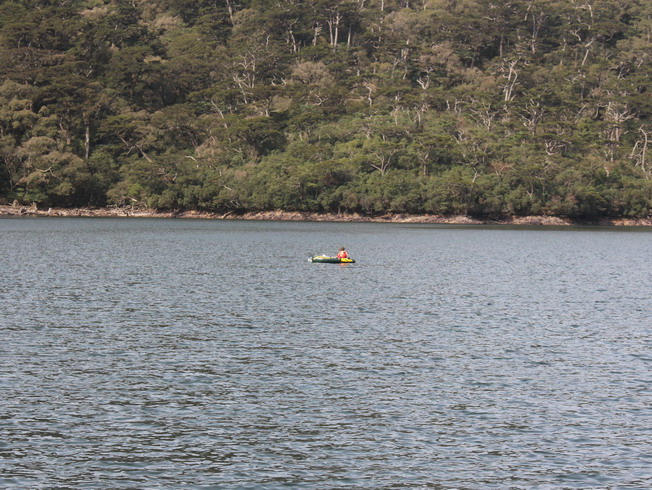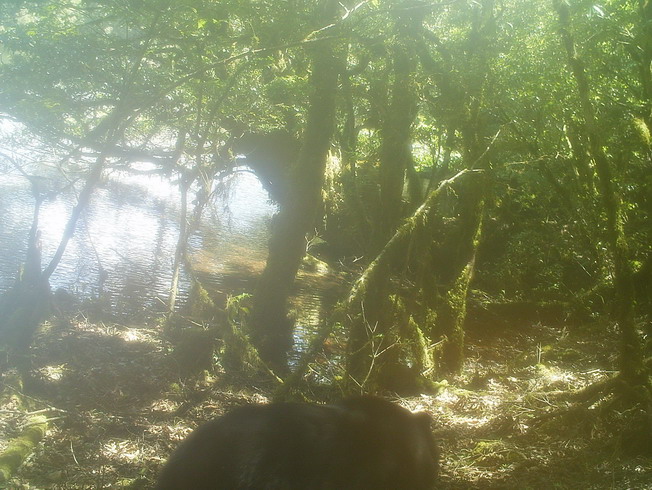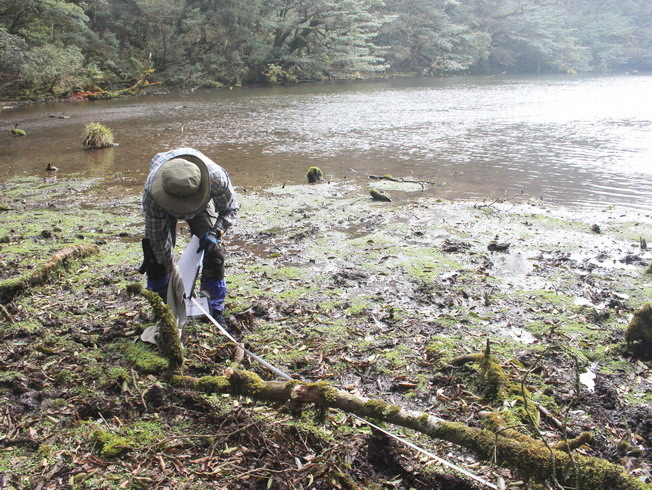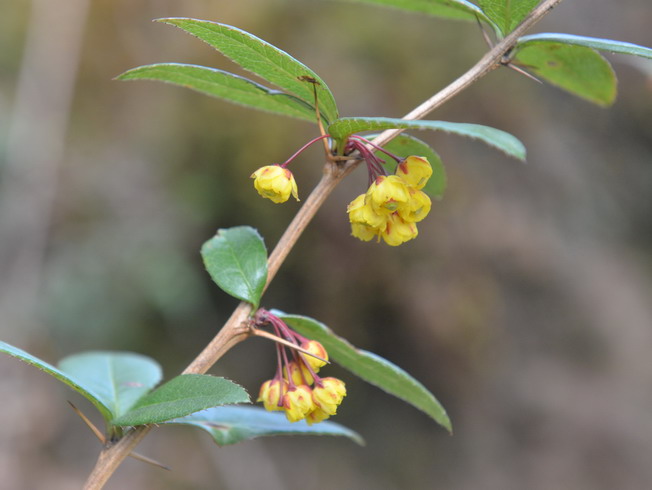
Research team of the Department of Forestry and Natural Resources, National Chiayi University, has been conducting the Daguei Lake Wetland Conservation and Utilization Plan, commissioned by the Urban and Rural Development Branch, Construction and Planning Agency, and the Pingtung Forest District, Office Forestry Bureau, since 2016. According to the plan, they need to investigate the background information of biological resources such as water, plants and animals. Their research results will be used to improve habitat management in terms of biodiversity conservation, water conservation, cultural assets, scientific research, and ecosystems in the future. As tomorrow (Feb. 2nd) is the World Wetlands Day, the research team announced the latest findings. The deepest part of the Daguei Lake, or Dalupalringi, reaches 65 meters during the dry season. The lake, whose water level can change by up to two meters or so during the wet season, can be up to 67 meters deep, which rewrites the record of 40 meters in the deepest part of the lake.
According to Zhang Kun-Cheng, Associate Professor of the Department of Forestry and Natural Resources, NCYU, the Daguei Lake is a natural high mountain lake in Taiwan. It is a national important wetland, consisting of three connected lakes including the main lake of Daguei Lake, eastern lake of Daguei Lake and western lake of Daguei Lake. The lake is located in the trackless mountain area of the Central Mountain Range around the Maolin District of Kaohsiung City. To carry out the investigation, thanks to people from the Rukkai Tribe as mountain guides, the research team need to strenuously take the rubber boat to the Daguei Lake. Rowing on the lake by manpower, they detect the depth of the lake with a sonar instrument. It takes eight to ten days for each trip to and from the Daguei Lake. The investigation itself is a toilsome process in which the research team need to camp in the wilderness for the whole trip.
Daguei Lake belongs to the Laonung Working Circle in the Pingtung Forest District, Office Forestry Bureau. Since its annoucement, the range covered by the the Daguei Lake Wetland Conservation and Utilization Plan has expanded from 39 hectares to 172.72 hectares. The objective is that the primitive ecological environment of the high mountain lakes in Taiwan, the vast virgin forests in the surroundings, and the rare animals and plants of Taiwan in the area can be fully protected.
According to the survey in the Daguei Lake Wetland by the the Pingtung Forest District, Office Forestry Bureau, there are 883 species of vascular plants, belonging to 139 families, that have been recorded in the conservation area. Among them, there are 98 newly recorded species, and nearly 80 rare species for conservation. There are 31 species of mammals in 16 families, 57 species of birds in 30 families, two species of benthic organisms in two families (Geothelphusa wutai and Placobdella okai). Many of them are classified as endangered, precious and rare species: for example, Formosan black bears, yellow-throated minks, brown lion cats, mountain hawk eagles, forest eagles, and mandarin ducks. With the endemic species and subspecies accounting for 77% of the species, the Daguei Lake Wetland can be said to be Taiwan’s treasure house of biodiversity.
 Research team of the Department of Forestry and Natural Resources, National Chiayi University, has been conducting the Daguei Lake Wetland Conservation and Utilization Plan, commissioned by the Urban and Rural Development Branch, Construction and Planning Agency, and the Pingtung Forest District, Office Forestry Bureau, since 2016. According to the plan, they need to investigate the background information of biological resources such as water, plants and animals. Their research results will be used to improve habitat management in terms of biodiversity conservation, water conservation, cultural assets, scientific research, and ecosystems in the future. As tomorrow (Feb. 2nd) is the World Wetlands Day, the research team announced the latest findings. The deepest part of the Daguei Lake, or Dalupalringi, reaches 65 meters during the dry season. The lake, whose water level can change by up to two meters or so during the wet season, can be up to 67 meters deep, which rewrites the record of 40 meters in the deepest part of the lake.
Research team of the Department of Forestry and Natural Resources, National Chiayi University, has been conducting the Daguei Lake Wetland Conservation and Utilization Plan, commissioned by the Urban and Rural Development Branch, Construction and Planning Agency, and the Pingtung Forest District, Office Forestry Bureau, since 2016. According to the plan, they need to investigate the background information of biological resources such as water, plants and animals. Their research results will be used to improve habitat management in terms of biodiversity conservation, water conservation, cultural assets, scientific research, and ecosystems in the future. As tomorrow (Feb. 2nd) is the World Wetlands Day, the research team announced the latest findings. The deepest part of the Daguei Lake, or Dalupalringi, reaches 65 meters during the dry season. The lake, whose water level can change by up to two meters or so during the wet season, can be up to 67 meters deep, which rewrites the record of 40 meters in the deepest part of the lake.

